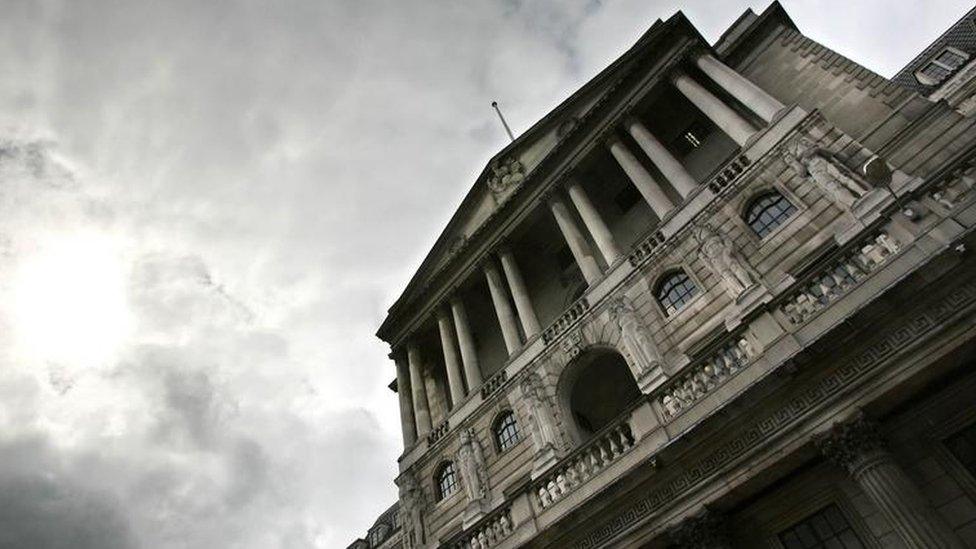Bank of England adds to global gloom
- Published
- comments

Now, it wasn't a surprise the Bank of England's Monetary Policy Committee kept interest rates on hold. They have done since 2009, after-all.
But this was the time when the governor of the Bank, Mark Carney, suggested that the possibility of interest rate rises would come into "sharper relief".
Many took his comments last summer to mean that interest rates could start rising in the first half of this year.
Some are revising that opinion, with economists arguing that it could be 2017 before there is any movement.
Read today's Monetary Policy Committee minutes, external of their latest decision to keep rates on hold and it is easy to understand why.
The global risks are building.
Here is the MPC on the remarkable gyrations of the markets since the start of the New Year: "Recent volatility in financial markets has underlined the downside risks to global growth, primarily emanating from emerging markets."
And on confidence in the economy: "Business surveys imply that the near-term outlook for aggregate [economic] activity is slightly weaker."
And on the remarkable collapse of the oil price: "The 40% decline in oil prices means that the increase in inflation is now expected to be slightly more gradual in the near term."
It all makes for a rather gloomy soup. And some would argue pushes any interest rate rise into the relatively far future.
So far today, the oil price has been fairly stable, up between 1% and 2% - leaving Brent Crude a whisker above the psychologically important $30 a barrel rate.
But the price is still sickly - down 10% this week - and has become a useful proxy for fears about a global growth slowdown led by China.
And in this New Year of volatile markets, there is still plenty to add to the sense of global difficulty.
'Prominent risk'
The credit rating agency, Standard and Poor's, brought out a new analysis this morning which makes for uncomfortable reading.
It says that the debt levels of businesses - as well as governments - operating in emerging markets is rising rapidly up the risk register.
"The world has amassed debt at a faster pace than income growth since the 2008-2009 financial crisis," Standard and Poor's says.
"That pace contrasts greatly between developed and developing economies.
"The ratio of debt to GDP (a proxy for income in this analysis) for Asia-Pacific and Latin America far outstripped that for Europe and North America."
In flashing red, the report says that businesses in Hong Kong and wider China have been borrowing heavily in the era of cheap global money.
That could pose significant dangers as interest rates - led by the US Federal Reserve, if not the Bank of England - start to tick upwards, increasing the cost of servicing those debts.
"In terms of corporate debt, the very high borrowing of Chinese and Hong Kong corporates amid China's economic slowdown poses a prominent risk," Standard and Poor's says.
And for a sober credit rating agency, that's pretty stark language.
There's a frying pan - the global growth slowdown - and a fire - high levels of indebtedness - out there.
The problem is, neither are very comfortable to stick around in.